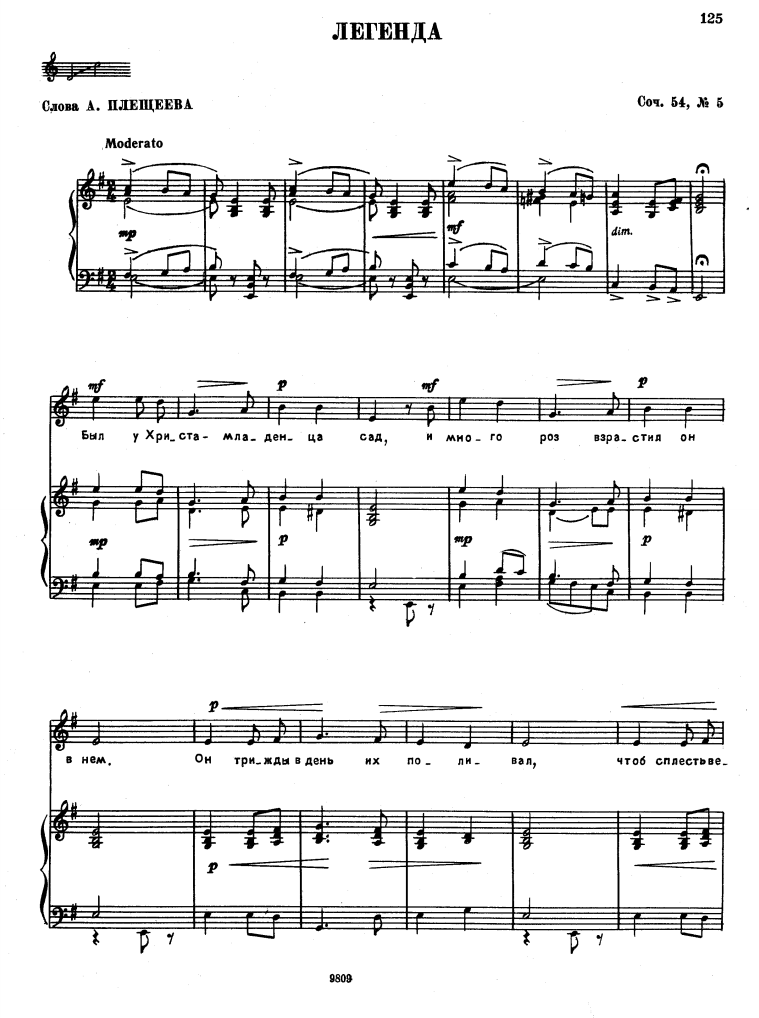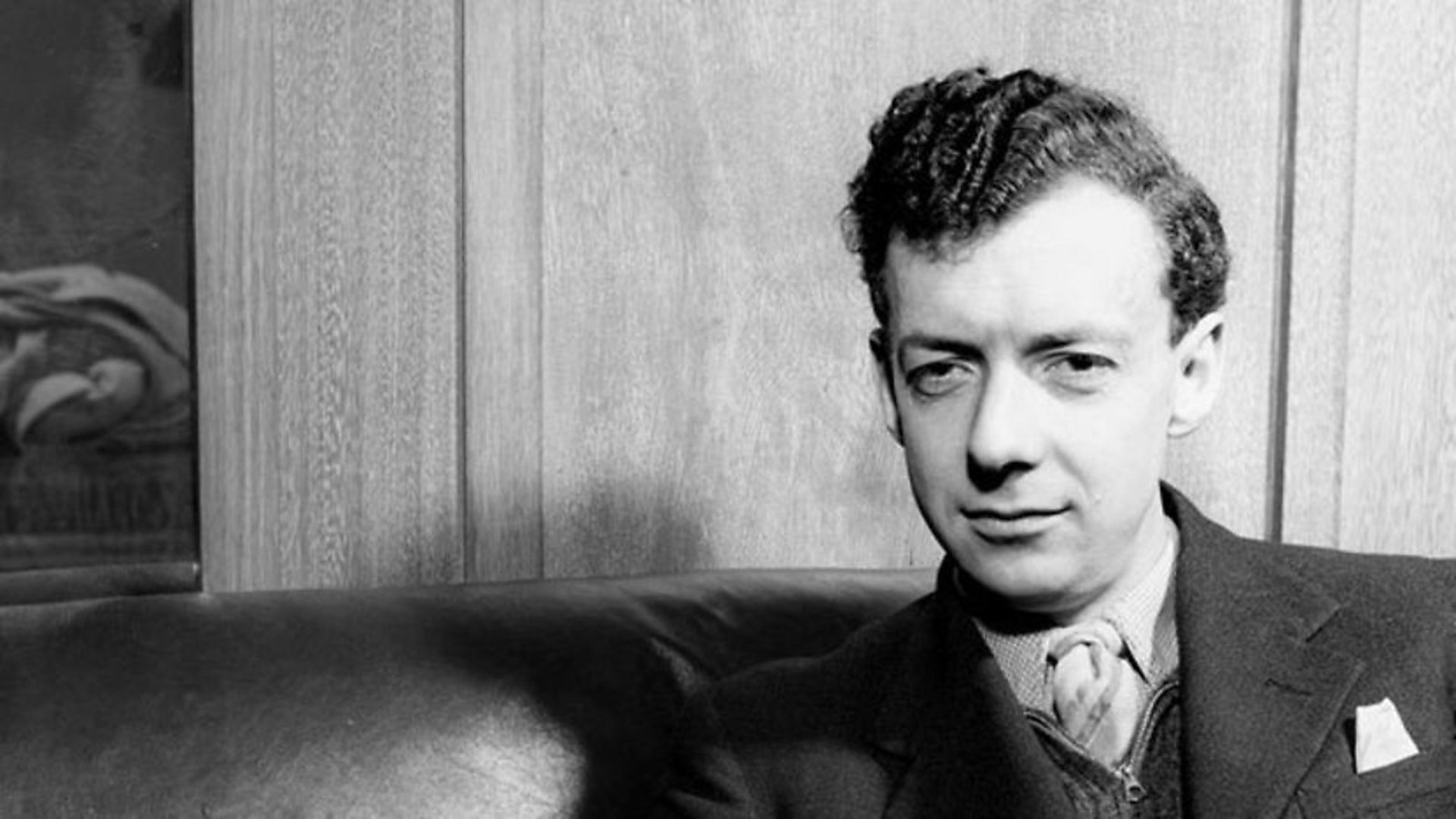Pëtr Il’ič Čajkovskij (1840 - 1893): Leggenda per voce e pianoforte op. 54 n. 5 (1883). Nicolai Gedda, tenore; Geoffrey Parsons, pianoforte.
Il testo è costituito da una traduzione russa, eseguita da Aleksej Nikolaevič Pleščeev (1825-1893), di una poesia, un tantino antisemita, di Richard Henry Stoddard (1825-1903) intitolata Roses and Thorns (vedi oltre).
Lo stesso brano nell’orchestrazione di Čajkovskij, interpretato (con testo inglese) da Peter Pears con l’English Chamber Orchestra diretta da Benjamin Britten.
Versione per coro a cappella eseguita dal Coro da camera del Ministero della cultura dell’URSS diretto da Valerij Kuzmič Poljanskij. Registrazione del 1988.
Anton Stepanovič Arenskij (1861 - 25 febbraio 1906): Variazioni per archi sopra un tema di Čajkovskij op. 35a (1894). London Symphony Orchestra, dir. John Barbirolli. Registrazione del 1947.
R. H. Stoddard: Roses and Thorns (1857).
The young child Jesus had a garden,
Full of roses, rare and red:
And thrice a day he watered them,
To make a garland for his head.
When they were full-blown in the garden,
He called the Jewish children there,
And each did pluck himself a rose,
Until they stripped the garden bare.
«And now how will you make your garland?
For not a rose your path adorns.»
«But you forget», he answered them,
«That you have left me still the thorns.»
They took the thorns, and made a garland,
And placed it on his shining head;
And where the roses should have shone
Were little drops of blood instead!
Aleksej Nikolaevič Pleščeev: Легенда (Leggenda, 1877).
Был у Христа-младенца сад,
И много роз взрастил он в нём;
Он трижды в день их поливал,
Чтоб сплесть венок себе потом.
Когда же розы расцвели,
Детей еврейских созвал он;
Они сорвали по цветку,
И сад был весь опустошён.
«Как ты сплетешь теперь венок?
В твоём саду нет больше роз!»
«Вы позабыли, что шипы
Остались мне», сказал Христос.
И из шипов они сплели
Венок колючий для него,
И капли крови вместо роз
Чело украсили его.


